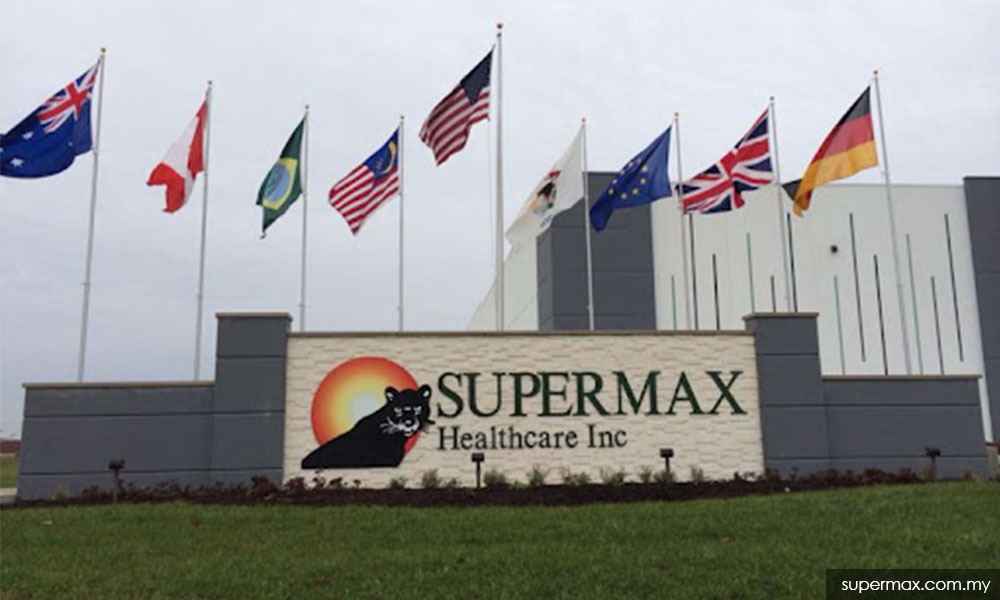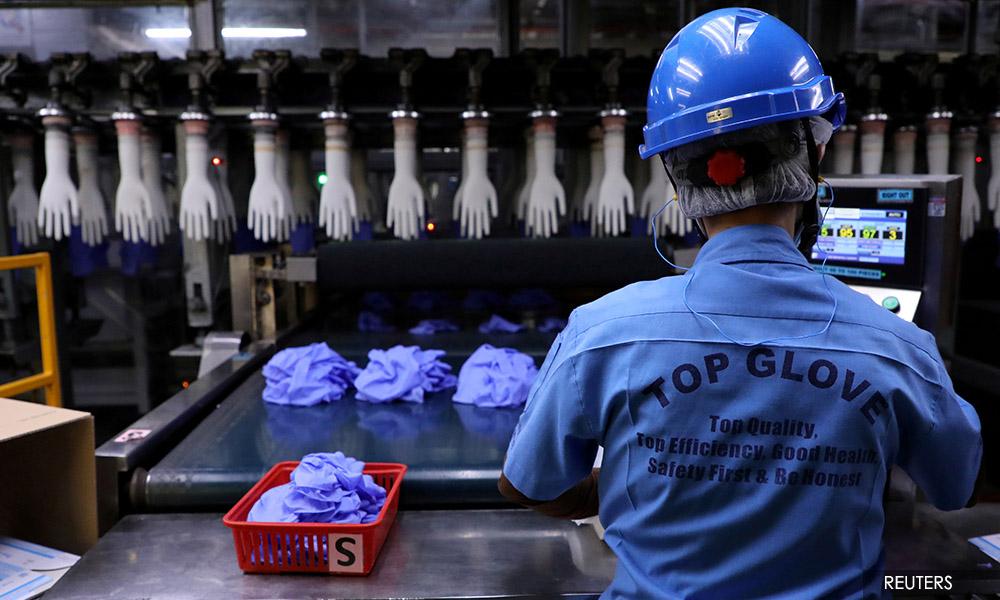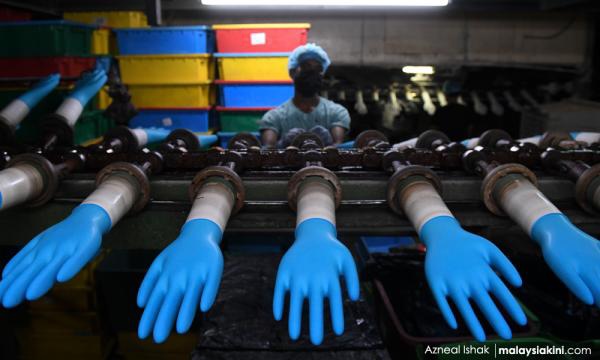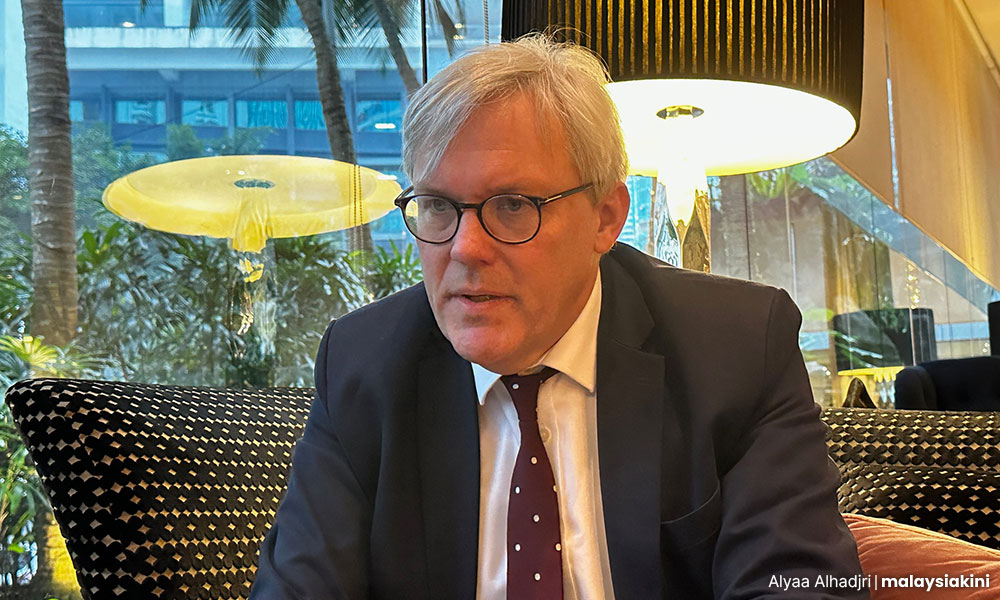UK Guidance on tackling modern slavery in government supply chains – Malaysian glovemakers
Malaysian glovemakers must prove there is no forced labour to UK’s National Health service. As per today’s Malaysiakini story and related links below, all related to a significant, interesting newly issued document by UK Government, ‘UK guidance on tackling modern slavery in government supply chains’.
UK Goverment on Modern Slavery – Comments by Andy Hall
It’s hopefully a useful document to many. It is rare something positive on modern slavery comes out of the UK government these days. But this policy is very welcome and credit should be given, where needed, to the UK government people involved in this!
Quite exciting to see and read this document actually for me, as modern slavery is so clearly moving up the agenda for public procurement in UK. Similarly in Europe, as in US and many other countries also there is a clear trend towards positive change.
Obviously the Supermax gloves (Malaysia) court case in the UK, and the out of court settlement brokered between former workers (and All Citizens NGO) appointed legal team at Wilsons and the DHSC/UK NHS related units, has been an important driver here to such significant change.
This Supermax related court case outlined in this post has been central to actually ensuring stronger practical measures are to be required now by UK law, and guidance or regulations put in place immediately, to prevent modern slavery occurring in public procurement supply chains like gloves in the UK National Health Service (NHS).
Without the Supermax case, probably we wouldn’t have seen so much change and so quickly also?

But there has been a lot of civil society campaigning in the UK, in past years, beyond this specific case, regarding human rights and public procurement too. And the UK government has recently amended its public procurement and modern slavery regulations more broadly too, hence this developed document that has now been issued.
Myself and my colleagues working on this issue of modern slavery and public procurement still remember somewhat traumatically the 2-3 years of Supermax gloves modern slavery case campaigning for the victims, and the silence of the UK government to the victims plight, given the abundance of evidence related to modern slavery at Supermax that we sent the government many times.
We personally still also feel some level of discomfort at the level of profits seemingly made by all suppliers and buyers concerned (won’t list them here!) at the expense of these forced labour victims, and lack of accountability. Proceeds of crime action? No enforcement ever taken or investigation of people who could be said to profit from modern slavery, by the related UK authorities?
Maybe the Supermax case wouldn’t have happened if this new UK public procurement and modern slavery document was in place, who knows? Certainly the UK government and its buyers have never remediated the victims, and that remains sad.
Supermax has however partly (never would I be satisfied with only partly and not fully!!) remediated, lots of positive changes occurred at the company since that time, I can attest to that! But as always, more is required in remediation for victims.
And it’s important Supermax is seen as just one of many such cases, one of many failures, one of many successes too.
Also, what I hear from some Malaysian gloves buyers is the focus on cheap price remains primary these days. Indeed the modern slavery talk is too often limited to increasingly expensive and imposed social compliance audits and related theoretical discussions.

Often multiple social compliance audits are being imposed on gloves suppliers in Malaysia in response to the modern slavery scandal in the country, sometimes seemingly overwhelming companies instead of making more systemic, positive change.
RBA, SMETA SEDEX, AMFORI BSCI, WRAP, SA8000 and multiple other social compliance standards competing at the same time for the important audit market, sometimes suppliers don’t know which standard to apply first. ILO and IOM (and other UN agencies) then pile in too, with guidelines and checklists and EU/US funded projects, everyone jumping on the band-wagon.
Are increased social compliance related costs to be born by Malaysian gloves suppliers, given its a buyers market again (with China flooding the market of gloves), meaning suppliers are again squeezed by the same public procurers or buyers claiming adherence to sustainability and government modern slavery standards? And low cost remaining primary, key to buying decisions?
This buyer price pressure is perhaps preventing Malaysian suppliers from also considering adopting more ethical recruitment, a living wage standard and adapting to a 60 hour working week, increasing worker welfare, as buyers don’t support such measures in reality on the ground in Malaysia, do they? Is it only theoretical talk, or practical encouragement in price negotiations?
This new UK modern slavery procurement document does mention short lead times, poor buying practices and other buyer behavior as contributing to modern slavery, but is it anything more than words in the capitalist market world?
Strange section 2.2 of this UK new guidance doesn’t specifically mention ‘migrant workers’ as a risk category, a small point, but a considerable omission. But the document does refer to low skilled, unskilled, temporary, seasonal or agency workers (and should say ‘migrant workers’) as ‘high risk’ in 2.2 and 2.4, other places in the document do mention migrant workers specifically too.
Obviously this new UK public procurement and modern slavery policy document mentions ‘rubber gloves’ several times which is as usually reactive of the UK government. And it’s good to see multiple mentions of migrant ‘recruitment’ risks too in here!
Conviction for modern slavery interestingly is a mandatory exclusionary ground in bidding for UK public procurement contracts, the document says, whilst evidence of modern slavery remains only a discretionary exclusion ground.
But don’t think anyone, including UK buyers, ever been held accountable for the gloves and forced labour issues. And no Malaysian companies convicted of forced labour offenses. But there is lots of smoke and other lesser convictions and publicity to provide ‘evidence’ of abuse in the Malaysian gloves sector in past years.
It’s great too that a lot of focus is placed in the policy document on the adequacy of audits, and defining what is a good thorough and reliable audit. This is important given the failure of the auditing industry for a decade to detect systemic forced labour in the Malaysian gloves market, which was something I could detect in about 5 minutes on the ground in 2018!
One final point, and it’s important here. Hypocrisy continues, as the UK government talk about the Employer Pays Model of responsible recruitment required from public procurement suppliers in this policy document. Stating it’s necessary that an employer covers a migrant workers recruitment costs to prevent modern slavery right?
Here are two questions for the UK government on this issue:
- (1) Will the buyers also pay or share the cost burden here, as it seems buyers don’t want to calculate responsible recruitment costs into bidding prices? and
- (2) Why doesn’t the UK government require the Employer Pays Model of Responsible Recruitment also for at risk workers coming into the UK too?
Seasonal agricultural scheme migrant workers coming into the UK (from Nepal, Indonesia, India, soon Bangladesh) have to cover their own recruitment costs, this is unfair and contradictory right? It’s a UK policy that a seasonal worker pays all their own recruitment costs (albeit fees supposed by law to be covered by farms) yet UK government supplier standard says that it is an employer/supplier that should pay?
Nepalese of Indonesian or Indian or Bangladeshi migrant workers coming into Malaysian gloves shouldn’t have to cover their own recruitment costs, the UK government claims in its public procurement policy? But those same workers coming into the UK agriculture sector should pay all their own costs, according to UK standards, regulations and practices? As I said, this is pure hypocrisy.
Overall, the new UK modern slavery and public procurement policy is an interesting read. Credit to the UK government for publishing this theoretical stance, in my humble opinion. It’s perhaps a world class document in theory? But in reality and given the hypocrisy and buying practices often evidenced by UK buyers (both public and private sector), what does it really mean in practice is yet to be seen!
Lots of repetition already here, so let me not start off also during this post on how the UK may have a modern slavery and migration envoy overseas but actually no modern slavery commissioner in the UK itself! Both of the last two modern slavery commissioners in the UK resigned in frustration, the position has been vacant for a long time, and the UK modern slavery and/or asylum debate is currently toxic. More of the hypocrisy here. Let me finish for now.
Malaysiakini 26th Feb 2023: M’sian glovemakers must show ‘no forced labour’ to sell to UK’s NHS
Original Article: Malyasiakini by Alyaa Alhadjri & S Vinothaa – 26th February 2023
Malaysia’s rubber glove manufacturers must now submit comprehensive audit reports clearing them of forced labour practices before they can sell to the UK’s National Health Service (NHS).
UK envoy for migration and modern slavery Andrew Patrick said this is in accordance with the UK’s newest and improved procurement framework.

‘UK guidance on tackling modern slavery in government supply chains.’ – See here.
“It’s a framework run by the Department of Health’s procurement experts who will be implementing it with firmness and I’ll be working with them.
“To actually get business, they need to meet the audit requirements.
“We have given our commitment to the British Parliament that we will do everything we can to eliminate forced labour from the supply of medical goods to the NHS,” he told Malaysiakini in an interview recently.
Patrick is in Malaysia on a special mission to engage with Putrajaya in addressing the risks of forced labour in the supply chains of goods to the UK.

He also met with the Malaysian Rubber Glove Manufacturers Association to ensure compliance with the new procurement framework.
“We talked to manufacturers about the new measures and we want to make sure we can work with the manufacturers who can ensure there is no forced labour in that supply chain.
“We discussed the new approach to procurement (buying gloves).
“We will be expecting manufacturers to be a lot more transparent with their operations and the UK government will also be able to conduct an audit on any company in the supply chain,” he said.
NHS major importer of M’sian rubber gloves
He noted that forced labour allegations around NHS’ suppliers of personal protection equipment (PPE), including rubber gloves, have been a prominent issue in the British media and Parliament.
As such, his trip was primarily to engage with the relevant Malaysian government agencies to tackle forced labour in the country.
It is estimated that the UK government buys five percent of all Malaysian rubber glove exports, entirely for the NHS.
After the UK government’s purchase of disposable gloves from Malaysian glovemaker Supermax Corporation Bhd’s subsidiary in 2020, the US and Canada imposed a ban on imports of goods from the same firm.
This was based on allegations of forced labour practices of its migrant workforce dating back to 2019.
The following year, Supermax pledged to reimburse recruitment fees paid by its current and former migrant workers, along with other remedial measures in a bid to lift the Withhold Release Order (WRO) imposed by US Customs and Border Patrol (CBP).
Recruitment fees were often exorbitant fees which workers pay, usually to agents, to secure employment.
While it does not necessarily mean there is forced labour, it could lead to debt bondage – one of the International Labour Organisation’s indicators of modern day slavery.
In 2022, the UK High Court allowed a judicial review of the UK government’s decision to proceed with its continued use of Supermax-produced disposable gloves despite forced labour allegations against it.
The UK’s Kuala Lumpur mission political counsellor Tom Shepherd said at the end of the previous procurement framework, all the rubber glove suppliers, including Supermax, were audited.
The outcome of the audit is confidential but an action plan to rectify bad practices was put in place for companies that failed the audit.
Other rubber glove manufacturers who are addressing WRO requirements or had done so in the past were Top Glove, WRP, Smart Glove, Brightway Holdings, Hartalega Holdings and YTY Industry Holdings.
Top Glove and WRP supplied rubber gloves to the NHS in 2018.
Top Glove implemented a zero recruitment fee policy in 2019, while WRP has also reimbursed recruitment fees to workers following backlash.
UK not softer than US
Shepherd said while the UK does not have the equivalent of a US CBP, which can issue an order to stop suspect goods from entering the country, the government’s procurement team does conduct its own due diligence.
“Our procurement team could decide not to buy from a manufacturer if they believed there was forced labour in the operations.
“It is not quite the same as the WRO but it amounts to banning goods,” he added.
Patrick said not having an equivalent authority as the US CBP does not make the UK softer on cases of imports of goods produced by forced labour.
“It would be a mistake to think that the UK was softer than the Americans because that was not the case. It’s just a different approach,” he explained.
“We are not in the business of WRO, but we are taking our due diligence with regard to procurement very seriously.
“Ultimately, if you are unable to raise your standards over time, to the standards that are needed by the NHS procurement then you won’t be able to do business,” he said.
However, he said, the UK approach involves working with errant companies to ensure compliance so they can continue doing business with the UK.
Instead of cutting firms off immediately after audits revealed issues, the procurement team would work with the company for an action plan so they can improve their practices, he added.
Intergovernmental fight against forced labour
On his trip, Patrick met with Council for Anti-Trafficking in Persons and Anti-Smuggling of Migrants (Mapo), NGOs and related stakeholders, as well as senior officials of the Human Resources Ministry and the Immigration Department.
He said he would also spend some time with other foreign missions in Malaysia to understand their respective concerns on the issue.
The envoy is visiting Thailand and the Philippines as well, to address the issue of forced labour there.
Patrick is looking forward to a long-term engagement with the Malaysian government, saying that the latter’s national action plan on forced labour is to be lauded, but just like in the UK, the challenge is in the implementation.
He said the UK is keen to share how it has managed to implement some of its policies against forced labour across industries and believes there are good practices that the UK can learn from Malaysia as well.
He added that the engagement goes beyond the recruitment process and that he would also have continuous engagement with NGOs and other stakeholders.
See Also: 10th July 2023 – Migrants in Malaysia: Hundreds left stranded in recruitment scam.
See Also: 10th July 2023: Allegations of forced labour and dangerous conditions at Dyson Malaysian factory.
See Also: 30th May 2023: Nepal to pay off loan to Malaysia – debt bondage and poor working conditions.
Recommended Reading:
- Government to face court hearing over links to PPE supplier accused of modern slavery – The government is facing legal action over its decision to continue using Supermax as a supplier of disposable gloves for NHS workers (Independent, May 19th 2022)
- UK faces legal action for approving firm accused of using forced labour as PPE supplier – High court to review government’s decision to include subsidiary of Malaysia’s Supermax in £6bn ‘framework’ deal for buying gloves (Guardian, January 6th 2022)
- UK investigates supplier of NHS PPE over alleged use of forced labour – Malaysia’s Supermax, which has a £316m contract with health service, has been banned from selling in US (Guardian, Nov 21st 2021)
- Government facing threat of legal action over PPE links to modern slavery – Exclusive: Lawyers to take government to High Court over failure to address allegations of labour abuses in NHS supply chain (Independent, April 1st 2021)
- Government ignored internal warnings over PPE suppliers accused of modern slavery – Exclusive: Whitehall identified companies suspected of forced labour as long ago as November 2019 – with further concerns about suppliers highlighted by UK diplomat during peak of pandemic (Independent, December 12th 2020)
